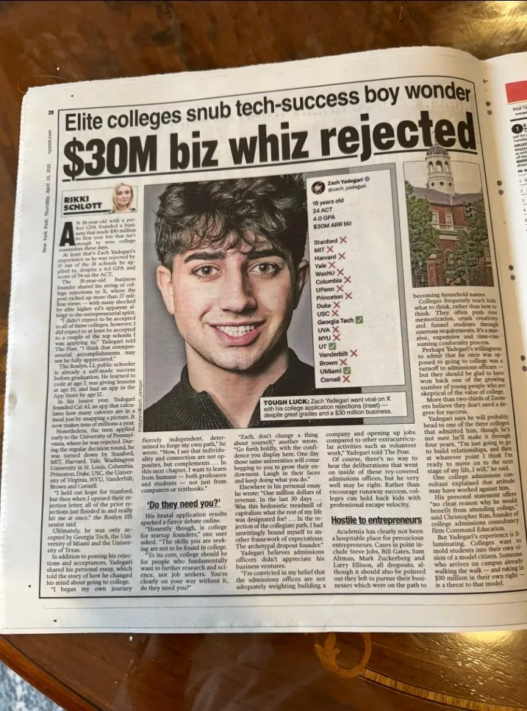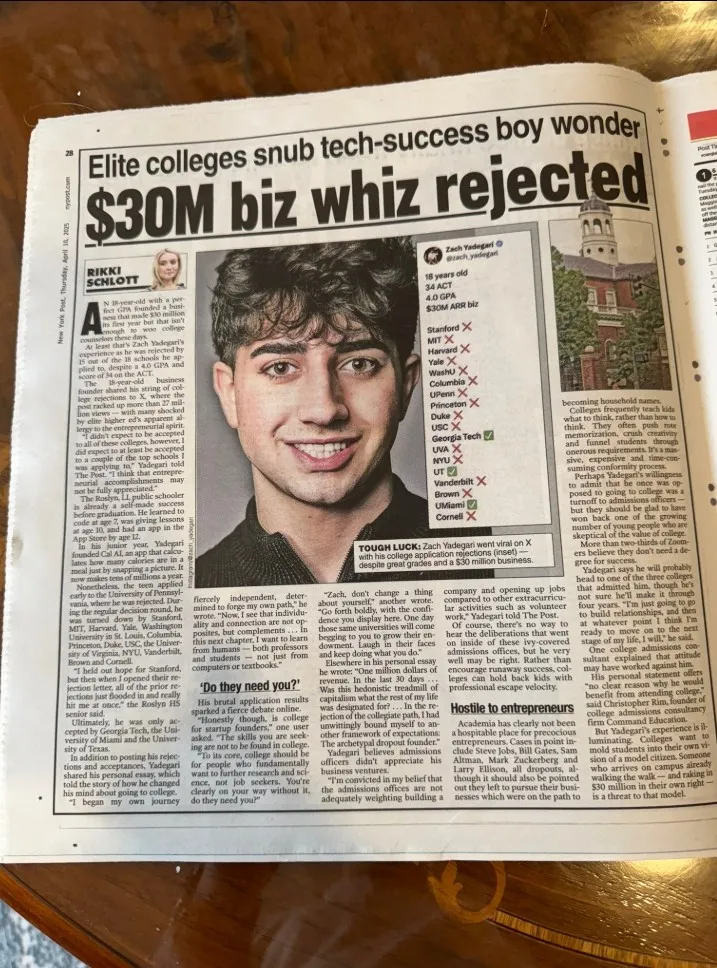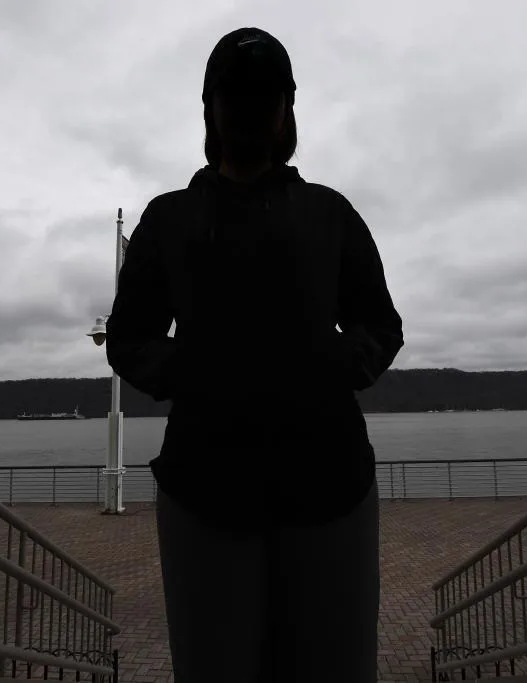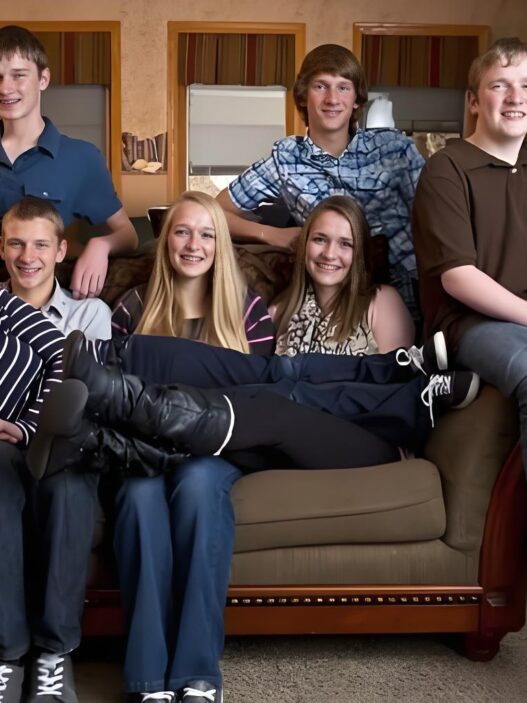Imagine being 18 years old, with nearly perfect grades. Last year, you founded a company, made $30 million in the first year, and achieved financial freedom before adulthood.
If at this point you still wanted to attend university, wouldn’t universities be eager to accept you?
That’s what Zach Yadegari thought.
This might sound like an unattainable dream for most, but it actually happened to Zach.
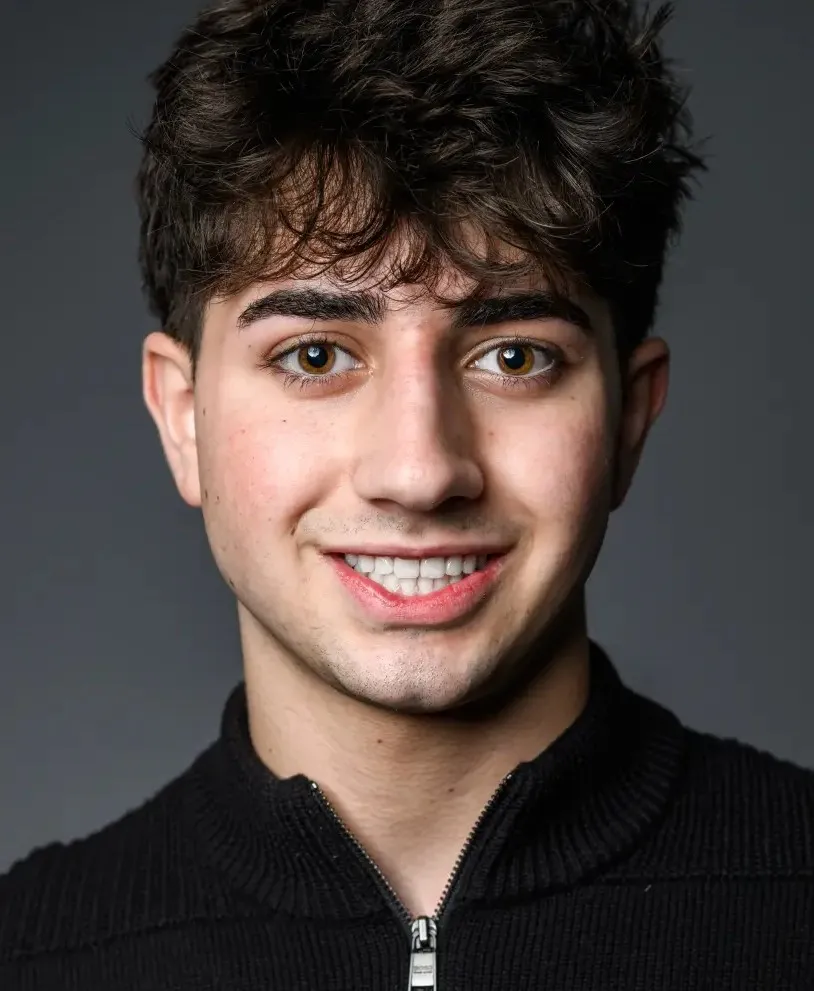
Zach Yadegari’s Impressive Achievements
Zach, now 18 years old, has just graduated from high school. His GPA is a perfect 4.0, and he scored 34 out of 36 on the ACT (American College Test).
What’s even more astonishing is that, while achieving these academic milestones, he was also running a business. At 17, Zach started his company. He balanced his studies with managing his team, graduating with excellent grades and achieving business success.
He developed an app called Cal AI, which uses AI (Artificial Intelligence) to scan food images and calculate calories. By combining the trendy appeal of AI with people’s deep-rooted interest in weight loss, “Cal AI” reached over a million downloads within six months, generating millions in annual revenue. Zach’s net worth soared to $30 million, and he even made it to Forbes (Forbes) magazine.

Calling him a “genius young man” seems perfectly justified.
The Unexpected Rejection from Top Universities
However, despite all his success, when Zach applied to universities, he was almost left without a spot.
He applied to 18 universities, but 15 rejected him, including prestigious institutions like Stanford University (Stanford), Massachusetts Institute of Technology (MIT), Yale University (Yale), and Harvard University (Harvard). Only Georgia Tech (Georgia Institute of Technology), University of Texas (UT Austin), and University of Miami (Miami) offered him admission.
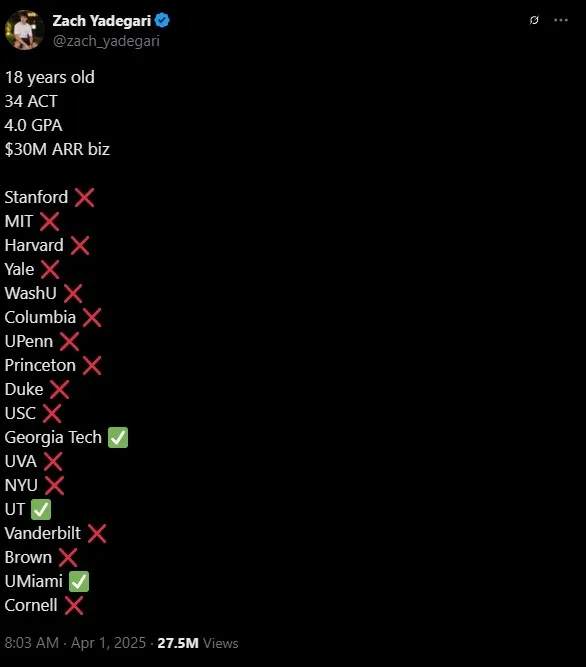
Zach thought this was absurd and shared his experience on Twitter (Twitter), which quickly went viral, receiving over 27.5 million views.
At first, many people sympathized with him. Some even argued that these so-called “elite schools” weren’t worth it, and Zach had actually dodged a bullet.
Others sarcastically suggested that these schools cared too much about “diversity” and implied that Zach should have “stacked more buffs” (referring to LGBTQ+ (Lesbian, gay, bisexual, transgender, queer) identities).
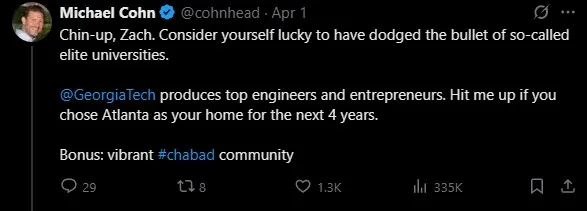
Zach’s Personal Statement: A Turning Point
After Zach released his personal statement, the tone of the comments shifted. High-ranking comments now pointed out his sense of entitlement, calling his approach to college applications “naive.”
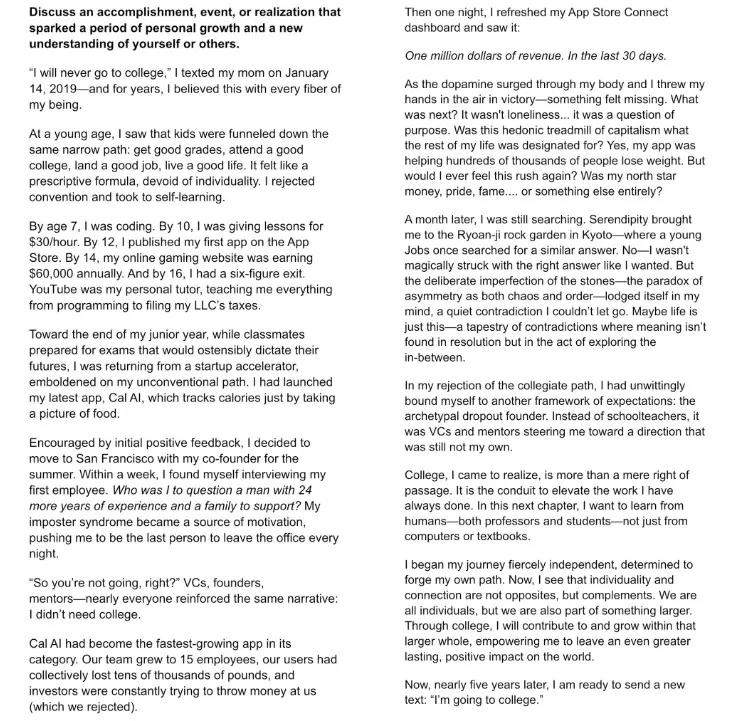
In his personal statement, Zach reflected on his achievements and why he still wanted to go to college.
At the age of 7, he began self-learning programming through YouTube (YouTube). By 10, he was charging $30 an hour for lessons. By 12, he released his first app on the App Store (Apple App Store). At 14, his gaming website brought in $60,000 annually. By 16, his income reached six figures, and at 17, he founded his company, launching Cal AI, and his wealth exploded.
Despite his success, Zach felt a sense of emptiness, questioning if money and fame were the only purposes in life.
Although he couldn’t find the answers, he hoped college would provide him with human connections and learning experiences, not just textbooks and screens.
Concerns About College Education
The personal statement revealed some unusual views on university education. Zach initially rejected traditional schooling, believing it to be too rigid. He mentioned how his investors and colleagues often assumed he wouldn’t need college, reinforcing his own doubts.
His statement, though reflective of his journey, conveyed an unintended arrogance, often mentioning his accomplishments, such as the success of Cal AI and how his team had grown to 15 members. He mentioned that investors “constantly wanted to pour money into us, but we turned it down.”
Zach’s essay conveyed a sense of entitlement and Versailles Effect (a term referring to subtle bragging), such as how his app’s revenue reached $1 million in 30 days. He mentioned that after reaching such milestones, he felt a sense of dissatisfaction.
Zach also implied that even Steve Jobs (Steve Jobs), who famously dropped out of college, once sought answers in Kyoto’s Ryoan-ji Garden (Ryoan-ji). This parallel reinforced his apparent belief in the “dropout founder” narrative.
The Turn of Public Opinion
As Zach shared his story, the tone of the comments shifted. High-ranking comments now pointed out his sense of entitlement, calling his approach to college applications “naive.”
Some critics pointed out that his essay seemed to display excessive arrogance and self-centeredness, revealing his focus on his personal achievements. Others questioned whether he genuinely wanted a degree or just the title of a “$30 million Harvard dropout.”
Zach’s Reactions and Criticisms of College Admissions
Zach defended himself, stating that if he succeeded further, universities would likely use his name for publicity, even if the odds were only 1%. He argued that universities needed fresh, new faces to add value to their reputation, even if only for branding purposes.
One commenter sarcastically pointed out that elite universities like Harvard and Stanford already had presidents, world leaders, and CEOs on their rosters and didn’t need him to enhance their image.
Zach, however, remained defiant, claiming that every “brand” could add value to a university, and new “brands” were always better.
The Saga of Rejection and Zach’s Future
A few days later, Zach posted an open letter on Twitter, criticizing the university admissions system for focusing too much on diversity and ignoring truly exceptional students like him.

In an interview, Zach expressed that he still didn’t understand why so many schools rejected him and hadn’t yet decided what to do next. His stance on the rejection remains defiant, even though his experience sparked intense debate online.
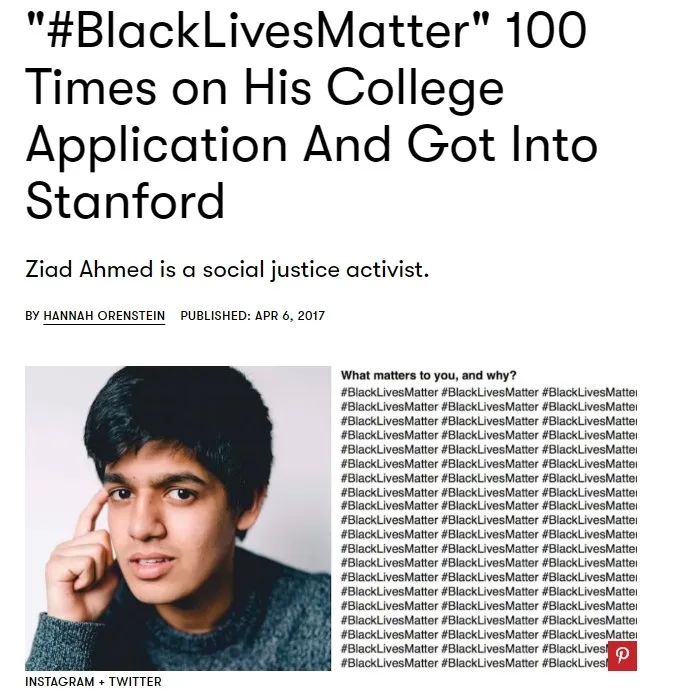
Conclusion: Was Zach Wronged?
So, was Zach unjustly rejected, or was he simply too young and arrogant for his own good? Regardless of the answer, one thing is clear: If he truly has no interest in academics, as he implied in his essay, then perhaps university really isn’t for him after all.







